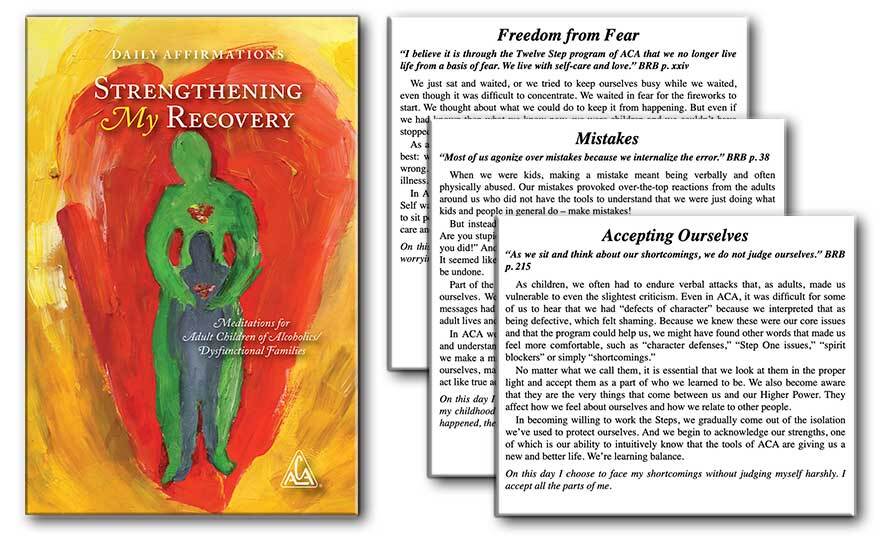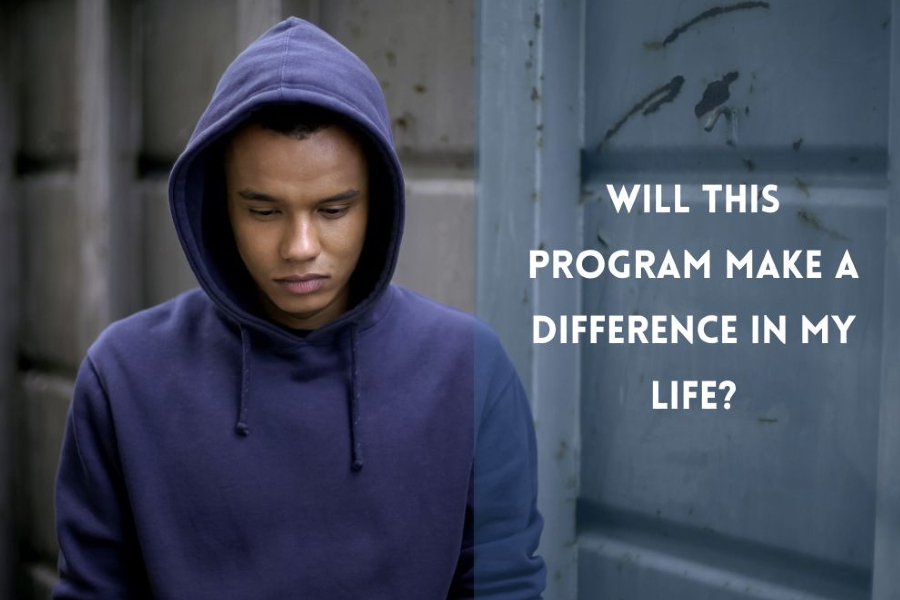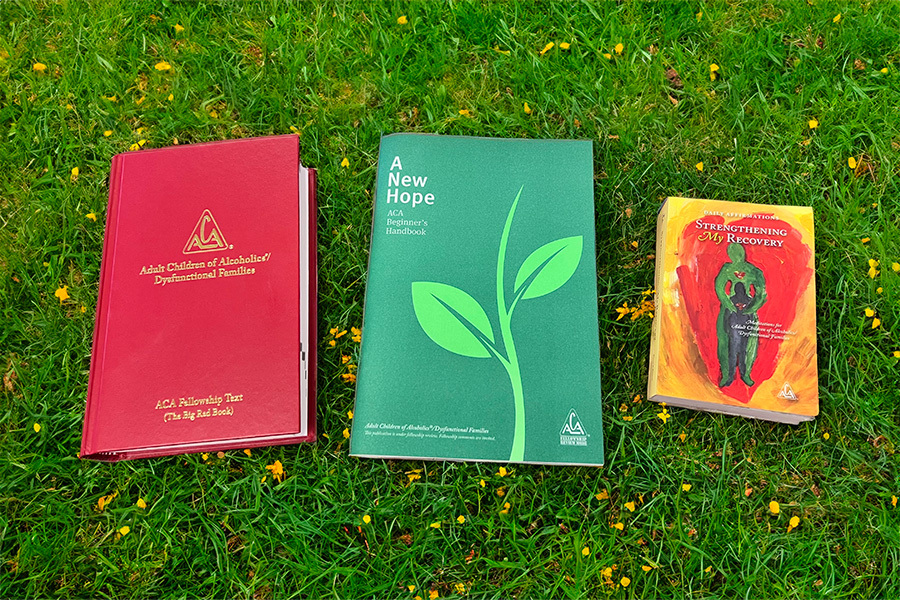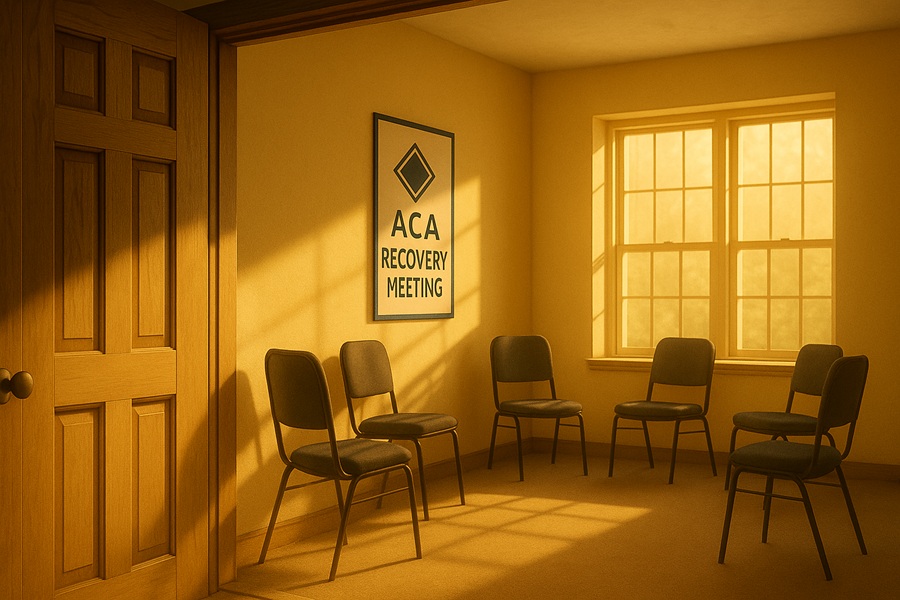Is ACA for me?
Welcome to ACA which is for people who want to heal their relationship with themselves when they have grown up with families of origin affected by dysfunction and/or substance abuse.
You've taken an important step by coming here, recognizing that something in your life isn't working anymore. Many of us arrived in pain, feeling like our lives were spinning out of control, or struggling with problems we couldn't solve alone.
Know that you're not alone anymore. Every person here has felt that same ache, that same realization that change was necessary. This program offers unique tools and support to help you heal and grow.
We suggest you read the Laundry List Traits. For many of us, it was like reading our own biography. If you find yourself nodding along, thinking "How did they know?", you're in the right place.
This is a special community where you can find people who really understand you like no one has before, and we're glad you're here. Your journey of recovery starts now.
The Laundry List – 14 Traits of an Adult Child of an Alcoholic
- We became isolated and afraid of people and authority figures.
- We became approval seekers and lost our identity in the process.
- We are frightened by angry people and any personal criticism.
- We either become alcoholics, marry them or both, or find another compulsive personality such as a workaholic to fulfill our sick abandonment needs.
- We live life from the viewpoint of victims and we are attracted by that weakness in our love and friendship relationships.
- We have an overdeveloped sense of responsibility and it is easier for us to be concerned with others rather than ourselves; this enables us not to look too closely at our own faults, etc.
- We get guilt feelings when we stand up for ourselves instead of giving in to others.
- We became addicted to excitement.
- We confuse love and pity and tend to “love” people we can “pity” and “rescue.”
- We have “stuffed” our feelings from our traumatic childhoods and have lost the ability to feel or express our feelings because it hurts so much (Denial).
- We judge ourselves harshly and have a very low sense of self-esteem.
- We are dependent personalities who are terrified of abandonment and will do anything to hold on to a relationship in order not to experience painful abandonment feelings, which we received from living with sick people who were never there emotionally for us.
- Alcoholism is a family disease; and we became para-alcoholics and took on the characteristics of that disease even though we did not pick up the drink.
- Para-alcoholics are reactors rather than actors.
What Literature Should I Get?
For newcomers to the Adult Children of Alcoholics and Dysfunctional Families (ACA) 12-step program, we recommend starting with the literature that provides an introduction to the program and its principles.
- A New Hope is designed specifically to help newcomers get familiar with the ACA program. If you can only start with one book, many newcomers choose to start with this one.
- The Big Red Book is the complete guide to the ACA Program and ACA recovery. Readings from the BRB are frequently used at ACA meetings. If you want to dive into the ACA program and have access to all the tools you need, add this book.
- Strengthening my Recovery is a daily reader that can ground and center you for the day. If you want to build a daily practice that brings many of aspects of recovery together in an easy to read way, add this book.
If you would like to receive emails with recovery articles you can subscribe to receive emails.
While you wait for your copy to arrive, look through the free ACA resources:
Recovery is a journey, and the ACA program offers a wealth of literature to support you at every stage. By starting at the beginning and gradually progressing to more in-depth resources, you can build a solid foundation for your healing and personal growth within the supportive community of ACA.
When you provide your email you will receive our daily meditation email featuring the meditation from Strengthening My Recovery book

If you purchase all three book as a bundle you will save 10% on your order.
What to Expect at a Meeting?
Taking the First Step
By moving from identifying with ACA traits to actively participating in meetings, you open the door to transformation.
We recognize how challenging it can be to enter a room full of strangers and admit you belong there. Many of us have faced fears of other people and authority figures.
However, taking this "big leap" is a crucial part of the journey.
What to Expect
In your local ACA meeting, you'll find people sharing experiences that resonate with your own. This identification helps relieve feelings of isolation and provides a sense of belonging. Through verbal processing and practicing new habits, we begin to realize the promises of ACA, including:
- Developing relationships that work
- Discovering our authentic selves
- Maintaining healthy boundaries
- Learning to love and accept ourselves
Our community offers a supportive environment where you can work through the issues that have affected you throughout your life. It's through commitment to the process – and to each other – that we grow and heal. Here's some more information if you wonder what 12 Step Meetings are.
Like people, meetings have their own personalities and there are various meeting types. If your first meeting doesn’t fit you, try another meeting. Try at least 6 meetings to let the process begin working. Then decide if it’s for you.
We warmly welcome you to join us on this journey of recovery and self-discovery.







